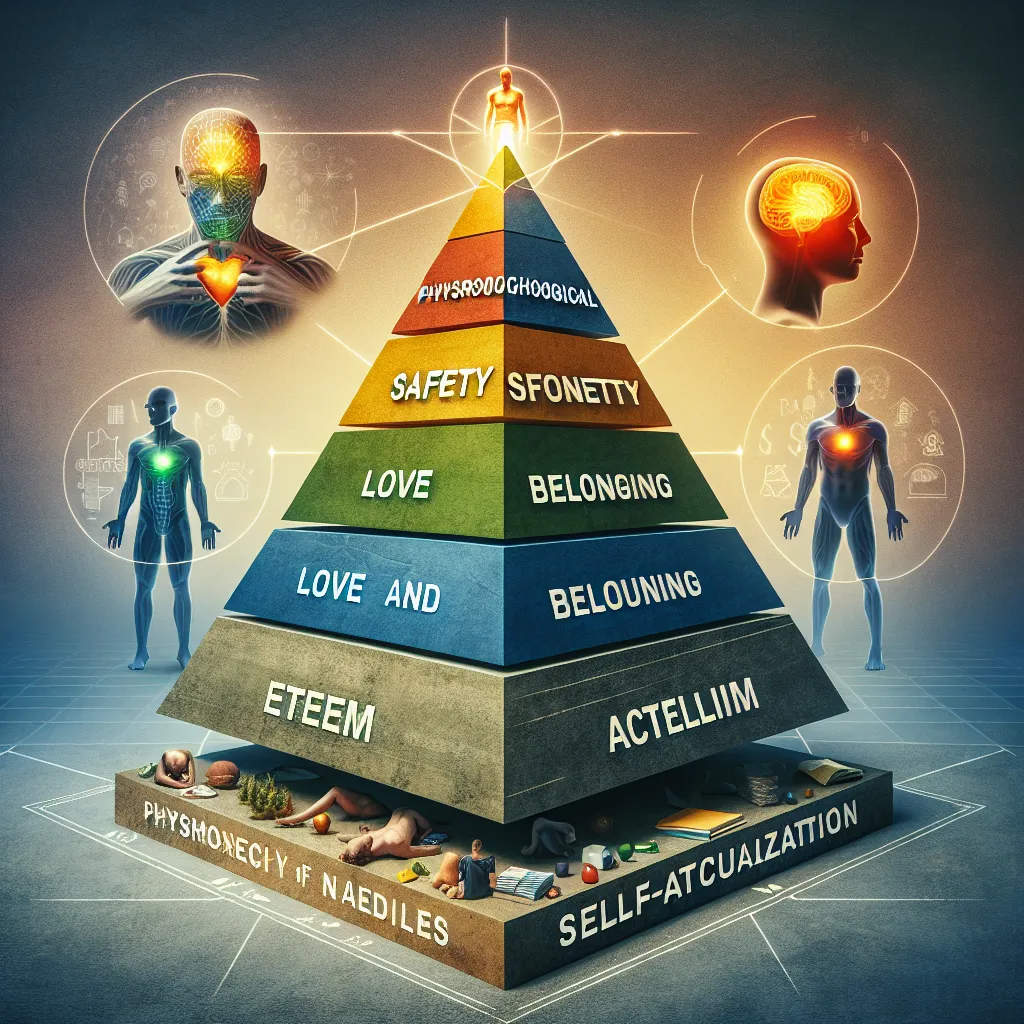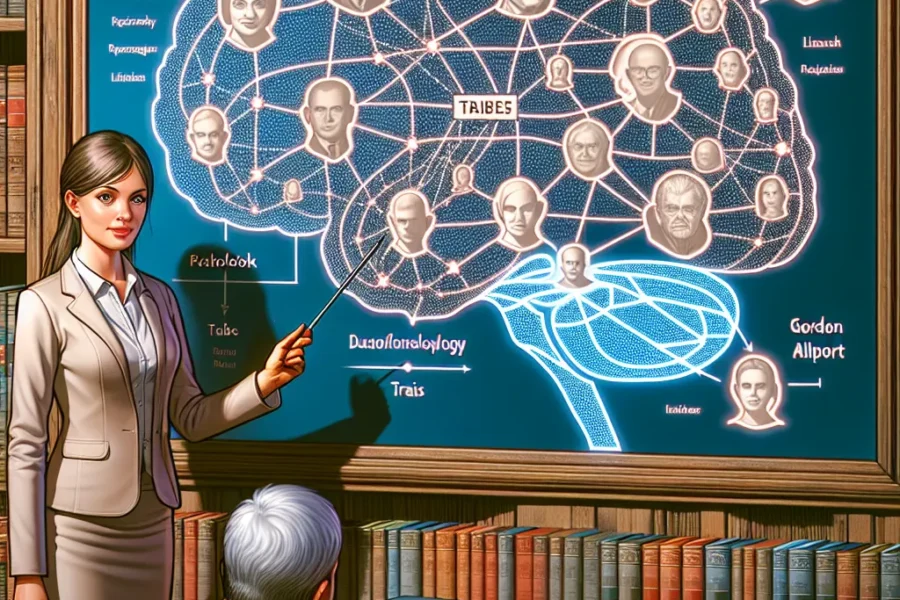Abraham Maslow’s Hierarchy of Needs has left an indelible mark on the fields of psychology, business, education, and many others. His 1943 paper, “A Theory of Human Motivation,” introduced the world to a revolutionary idea – that human needs are arranged in a hierarchy and that some needs must be fulfilled before others. This concept has since shaped countless organizational practices, personal growth strategies, and educational policies, illustrating Maslow’s profound impact around the globe.
The foundation of Maslow’s Hierarchy of Needs is the physiological needs – the basic requirements for human survival. These needs include food, water, warmth, rest, and shelter. According to Maslow, these are the immediate drivers of human behavior, as no other needs become relevant until these basic needs are met. In organizational settings, ensuring these fundamental needs can translate into fair wages, reasonable working hours, and safe working conditions. Businesses prioritizing their employees’ well-being can maximize productivity, reduce turnover, and foster loyalty.
Above physiological needs come safety needs, which encompass personal security, employment, resources, health, and property. When people feel secure and stable, they are more likely to be engaged and satisfied with their work, leading to higher employee retention rates and overall company success. Furthermore, an environment that values safety can encourage innovation, as individuals feel more comfortable taking calculated risks without the fear of losing their basic securities.
Maslow’s third level addresses the need for love and belonging, which involves friendship, intimacy, and family. Human beings are social creatures and thrive on connections with others. In the workplace, this translates to the importance of team-building, positive work relationships, and a sense of community. Companies that create a culture of belonging see increased motivation and a greater sense of employee fulfillment, leading to enhanced teamwork and collaboration.
Esteem needs come next in the hierarchy. They revolve around the need for self-esteem, respect, status, recognition, strength, and freedom. When these needs are fulfilled, individuals feel confident and valued. Employers can foster a culture that satisfies these needs through recognition programs, opportunities for professional development, and empowering employees to take on responsibilities. This focus on esteem can elevate performance, encourage leadership, and support a thriving, innovative workplace.
At the pinnacle of the hierarchy is self-actualization – the desire to become the most that one can be. It refers to the pursuit of personal growth, fulfillment, and the realization of one’s potential. These needs are particularly relevant to the field of education, where the model has been used to inform teaching methods and curricula that aim to help students develop a love for learning and self-fulfillment, rather than simply focusing on grades.
The influence of Maslow’s Hierarchy of Needs extends far beyond the traditional organismic needs and into the contemporary digital age. The need for esteem and belonging has shaped the landscape of social media, where users seek validation and connection through likes, comments, and shares. In recognizing these modern needs, marketers and advertisers have developed strategic content to target audiences on a psychological level.
Moreover, Maslow’s theory is intrinsically connected to consumer behavior. The understanding of what drives individuals at different levels of the hierarchy can influence marketing strategies and product development. Businesses that apply Maslow’s concepts can tap into their customers’ needs more effectively, delivering products and services that resonate on a deeper emotional level.
However, it is not merely businesses and marketers that benefit from Maslow’s wisdom. Personal development and self-help industries also draw on the hierarchy of needs. Many self-help strategies are based on the premise of identifying and satisfying individual needs at different levels, promoting overall well-being and satisfaction.
In the healthcare industry, Maslow’s theory helps professionals understand patient behavior and motivations. This understanding can lead to more patient-centered care, focusing on treating the whole person rather than just the symptoms of a disease. Integrating Maslow’s model into patient care ensures that healthcare providers address the broad range of patient needs, from the basic physiological to the complex psychological.
Additionally, Maslow’s hierarchy has found a place in political science and economics by providing insight into societal welfare and public policy. A government that recognizes the importance of fulfilling its citizen’s basic needs can create policies aiming at poverty reduction, healthcare, education, and economic stability. These policies enhance social stability and contribute to a thriving nation.
Maslow’s work also has profound implications for personal relationships and parenting. Awareness of an individual’s needs at each level encourages empathy and can lead to more nurturing and constructive relationships. Parents and educators who apply Maslow’s principles can focus on creating environments where children feel safe, loved, and supported in their pursuit of personal development.
Critics of Maslow’s hierarchy point out that the model may not hold universally, as cultural differences can influence the prioritization of needs. Additionally, not everyone progresses through the hierarchy in a linear fashion, and some may satisfy higher-level needs despite lower-level needs being unmet. Despite these criticisms, the core principles of Maslow’s theory remain influential and continue to guide practices across various fields.
In conclusion, the impact of Abraham Maslow’s Hierarchy of Needs is pervasive and enduring. Its applications span a multitude of disciplines, from business and marketing to education and healthcare. Understanding and addressing the different levels of human needs can lead to increased satisfaction, productivity, and well-being. Companies, educators, healthcare providers, and policymakers who integrate Maslow’s insights into their work can better serve their communities and contribute to the improvement of society as a whole. As we move forward, Maslow’s framework continues to be a foundational element in the study of human motivation and remains a powerful tool for fostering growth and development across various aspects of life.



Leave a Comment